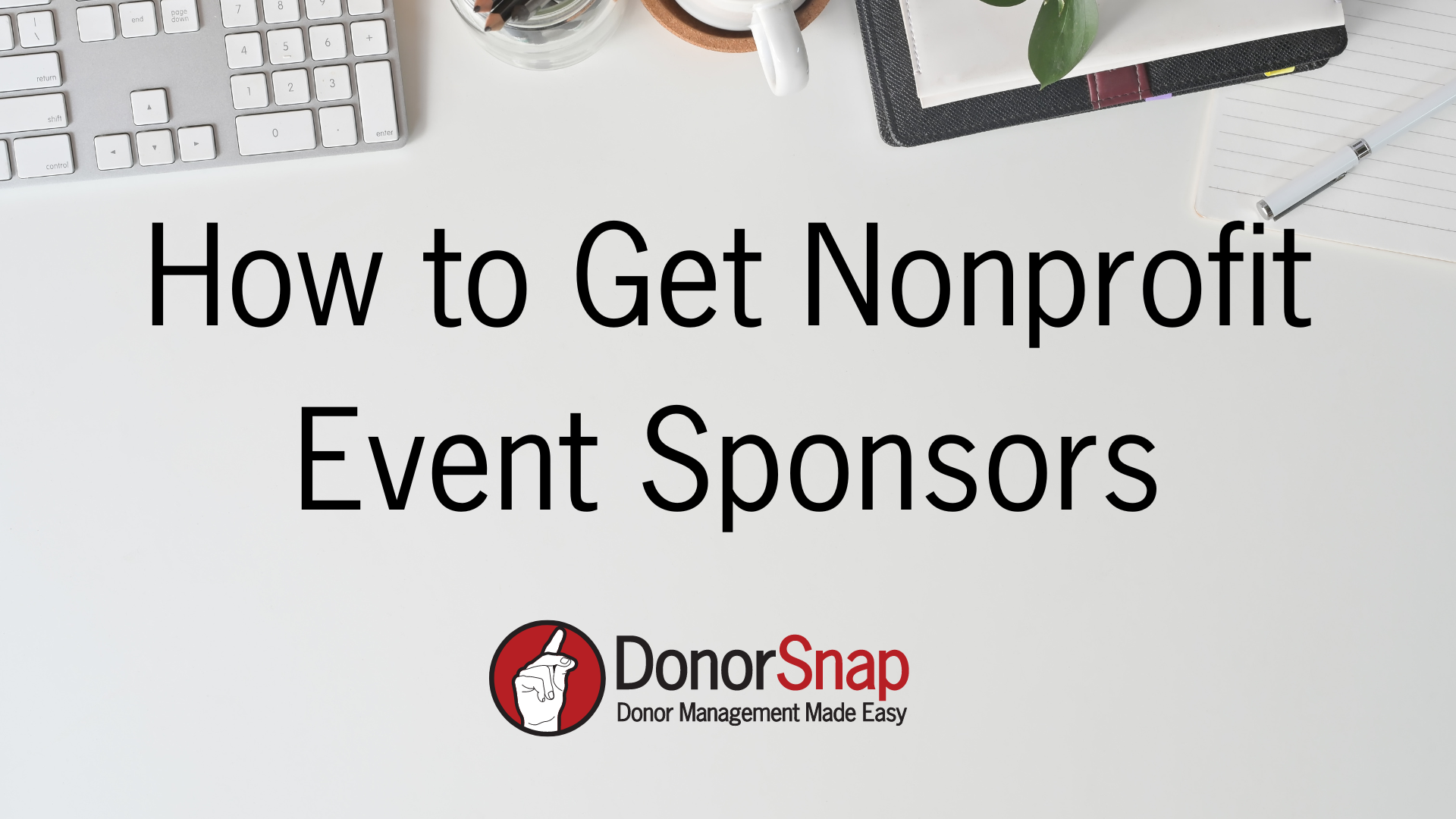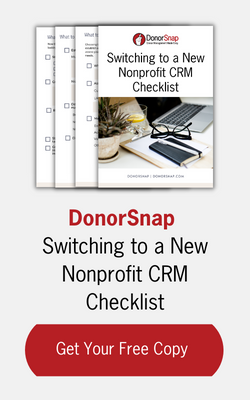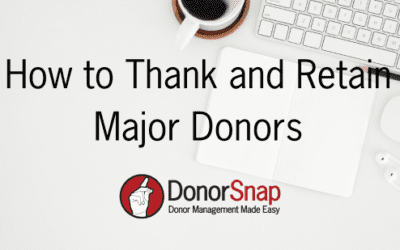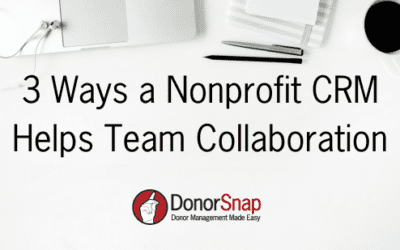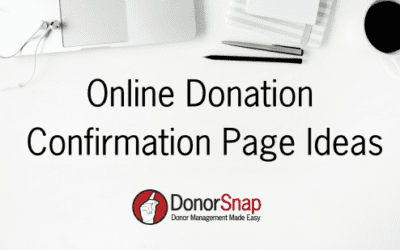Sponsorships can be an excellent way for your nonprofit organization to reduce the cost of running an event. They also offer an opportunity to network with other organizations in your area and reach new supporters.
If you are looking to get more sponsors for your next nonprofit event, keep reading. We will cover simple steps you can follow to get sponsors for your events and also build lasting relationships with them.
How do Nonprofit Event Sponsorships Work?
With a typical event sponsorship, a for-profit organization will provide financial support to a nonprofit organization to host an event. In return, the nonprofit organization expresses its gratitude by acknowledging the sponsor during the event. You may have encountered event sponsors’ logos featured in printed or online materials related to specific events. This arrangement is a common practice between nonprofits and their event sponsors.
Best Practices for Getting Nonprofit Event Sponsors
There are a number of ways your nonprofit can get sponsors for your events. It is important to formulate a plan for finding event sponsors. The more strategic you are with planning the more beneficial the sponsorship will be for you and your sponsors. The following steps will guide your nonprofit in the search for sponsors for your upcoming event.
1. Set a realistic sponsorship goal
Before you start reaching out to organizations to sponsor your event, set a realistic goal for what your organization needs. For example, do you need sponsors to fund 50% of the cost of your event? Knowing your goal ahead of time will help you organize your asks, determine how many organizations you need to reach out to, and what your sponsorship offers should look like.
It is also helpful to decide if sponsorship could go beyond dollars. For example, are you willing to accept donations In-Kind such as a local restaurant catering your nonprofit event? Going this route can provide potential donors with more flexibility and garner more support for your organization.
2. Put together a sponsorship package
Once you’ve established your goal, you can create your sponsorship package. Think of this like a sales pitch to your potential sponsors. You should include details of your event, suggested sponsorship amounts or levels, contact information, and a deadline to donate. Your sponsorship package should be put together in an organized document. This document can include more details such as the mission of your organization, impact, images, and anything else you think may help you sell your case.
Online graphics tools like Canva can help you put together a nice-looking document with little to no design experience. You can also use Adobe programs if your nonprofit has access to them.
3. Research potential nonprofit event sponsors
Next, your nonprofit should take the time to research organizations that could be sponsors. Start with local organizations or organizations that have a crossover into your nonprofit. For example, if you are an animal shelter and are looking for sponsorship of an event, you might want to look up local pet food stores or veterinary hospitals. Work with your team and compile a list of potential sponsors with details on why they would be a good fit. This will help you in your next step when you put together a communication plan.
4. Create a personalized communication plan
From here, you should reach out to potential sponsors for your organization’s event. Your communication plan should include how you will reach out to sponsors (email, phone call, in-person visit, or paid advertisement) and how often. If you have done your research and have your list of potential sponsors, the next step is to create personalized asks. These asks should include why you think their organization would be a good fit for sponsoring your event. Looking back to our animal shelter example, adding a personal touch, such as mentioning how most of your event attendees are animal lovers, can improve your chances of connecting with an organization and securing them as sponsors.
5. Create a thoughtful thank-you process
Thanking your event sponsors is just as important as thanking your donors. You should create a personalized thank-you letter for all of your event sponsors. This can be done using the acknowledgement system in DonorSnap, which allows you to easily create personalized thank-you letters for a particular category. Make sure you share with your sponsors the impact of their gift. For example, if they sponsored a fundraising event, let them know how much that event raised and what you will do with the money. It is important to follow the same thoughtful process of thanking your donors with your event sponsors which always involves delivering impact.
How far in advance should nonprofits reach out to event sponsors?
Your nonprofit should consider reaching out to potential event sponsors at least 3 months prior to your event. Larger corporations may have a lengthy approval process for sponsoring events, so you will need to consider this when trying to secure their support. If an organization has been a sponsor for years prior, you might have more wiggle room but generally give them enough time to have the budget approved. Your nonprofit should have an appropriate communication plan for both recurring and new sponsors.
Should event sponsors receive a tax letter?
There are certain tax implications for nonprofit event sponsorship. For example, you can recognize an organization for sponsoring your event by displaying their logo and linking to the home page of your website. However, you cannot promote or advertise a particular product or service from your sponsor. It is important to always check with your accountant on how to handle individual tax situations.
Final Thoughts
Securing event sponsorships for your nonprofit organization can be a great way to reduce event costs and connect with potential new supporters. By setting a realistic sponsorship goal, putting together a well-designed sponsorship package, researching potential sponsors, creating a personalized communication plan, and thanking your sponsors thoughtfully, you can successfully secure event sponsorships for your nonprofit. As always, it is important to consult with your accountant on any tax implications related to nonprofit event sponsorships.
